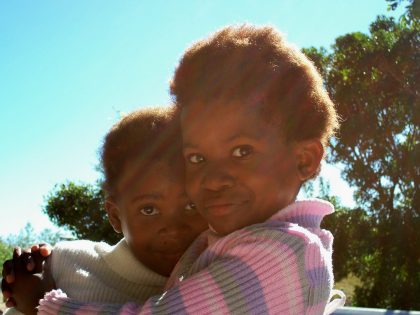
Africa’s last neoliberals
As the pink tide swept through Latin America, Africa’s neoliberal regimes held firm. Where is Africa’s rupture —and what explains the absence of a sustained left challenge?

As the pink tide swept through Latin America, Africa’s neoliberal regimes held firm. Where is Africa’s rupture —and what explains the absence of a sustained left challenge?

After a historic election and on the eve of celebrating fifty years of independence, Mozambicans need to ask whether the values, symbols, and institutions created to give shape to “national unity” are still legitimate today.

Depois de uma eleição histórica e em vésperas de celebrar os 50 anos de independência, os moçambicanos precisam de perguntar se os valores, símbolos e instituições criados para dar forma à “unidade nacional” ainda são legítimos hoje.

A solidariedade socialista na Angola e Moçambique pós-coloniais tornou as pessoas queer invisíveis. Revisitar esse apagamento nos ajuda a reinventar a libertação de forma legítima.

Socialist solidarity in postcolonial Angola and Mozambique rendered queer people invisible. Revisiting this erasure helps us imagine liberation anew.

Western leftists are arguing among themselves about whether there will be bananas under socialism. In Africa, however, bananas do not necessarily represent the vagaries of capitalism.

Once associated with socialism, the language of participation has been co-opted. How was this radical idea depoliticized?

In the 1960s, two African nationalist magazines shared a name—but declassified files reveal that they were on opposite sides of a literary Cold War.

Set in newly independent Mali, 'Dancing the Twist in Bamako' is neither propagandistically praiseful of socialism nor does it present it through a wholly negative lens.

Mexico’s president has a mandate for radical change, but this change must be negotiated within a context of limits produced by the neoliberal period itself.

The left's win in Colombia signals that after more than six decades of war, people just want to live with dignity and in peace.

In a country like South Africa where government trust is low, gangsters and criminals who provide assistance to their communities are seen as the people’s champions.

The mathematician Edwin Madunagu, 75 years old in 2021, is one of Nigeria’s foremost socialist intellectuals. Here, his friend Biodun Jeyifo, the literary scholar, pays tribute to him.

El Sadaawi died on March 21, 2021. Her complex and evolving positions mean there is more than one version of her to commemorate.

Why are South African government policies benefiting black mothers still controversial?

Assuming today’s socioeconomic crisis benefits the Left is folly. That will only happen if we have the political vision to make class the fault line of social polarization, and for that we need to face the challenge of constructing a new party.

Thomas Sankara has emerged as both a lesson on the uncertainties of revolutionary change and the possibilities for people-centered development for the present and future.

The new film about Brazilian revolutionary Carlos Marighella is one dimensional. It should not distract from Marighella's legacy.

Governments need funds for stimulus packages and aid to address COVID-19. But corporate tax avoidance and tax breaks for aid in African countries is undermining emergency responses.

COVID-19 isn’t simply a medical or epidemiological crisis; it is a crisis of sovereignty.